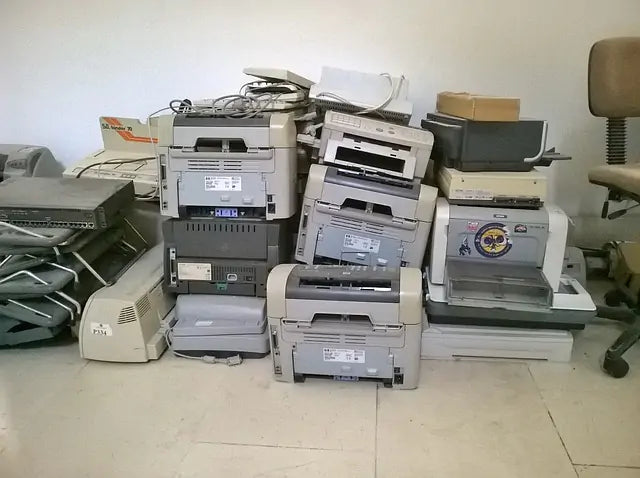Your basket is currently empty.
Shop NowWhat Can Businesses Do to Improve Recycling?

According to WRAP, UK businesses produce around a quarter of the UK’s waste. Businesses have a legal and ethical duty to manage waste responsibly and recycle as much as possible. However, there are business benefits too. Here’s how business recycling can save you money and how you can do it better.
The Legal Duty to Dispose of Waste Responsibly
Under section 34 of the Environment Protection Act 1990, businesses have a duty of care to dispose of waste responsibly. This means;
- Storing waste safely and securely;
- Preventing the waste from causing harm to people or the environment;
- Make sure that you use licensed waste contractors;
- Keep your waste to a minimum by abiding by the waste management hierarchy (Prevent, Reuse, Recycle, and Recover).
The Benefits of Business Recycling
The ideal would be to not create waste in the first place. However, realistically, your business operations are going to create some waste. Having a business recycling programme in place can have a lot of benefits for your business including;
- Being seen as a ‘green’ business by environmentally-aware consumers and clients;
- Raising morale by getting employees involved in environmentally-friendly initiatives;
- Saving you money on landfill taxes and other waste management fees.
How to Improve Your Business Recycling
Recycling more in your business doesn’t have to be a headache. So, here is how you can make it a success.
Make a Business Recycling Plan
You know what they say about failing to plan. Having a business recycling plan in place makes sure that everyone is on the same page. In your plan, outline;
- Your recycling goals;
- What you’ll recycle;
- What recycling containers you’ll have in place;
- How you’ll get employees involved?
Give Employees a Role
Could you appoint ‘recycling champions’ in each department to make sure everyone is clear on how to recycle as much as possible? Getting employees involved will make them more invested and your initiative is more like to be a success.
Audit Your Waste
You need to know what you’re throwing away. Anything that ends up in the bin is costing you money and it’s costing the environment dearly too. However, if you’re throwing away excessive amounts of certain materials, you can put targeted measures in place to cull your waste.
Create Dedicated Business Recycling Stations
A big part of improving recycling in your business is making it as convenient as possible. For example, putting paper recycling bins near desks and in photocopying rooms. Recycle more plastic by putting a plastic recycling bin in staff canteens and high-traffic areas. This all makes people far more likely to recycle. In addition, don’t forget to make it clear to employees what they can and can’t recycle in each receptacle.
Don’t Forget About E-Waste
Businesses, especially office-based ones, tend to produce a lot of E-waste. Electronics contain hazardous materials and precious metals so they must be recycled separately. Most importantly collect E-waste in a separate container and arrange for proper disposal by a licensed contractor.
Get Your Employees on Board
Getting employees on board is important if you want your business recycling initiative to be a success. Make sure every employee knows the details of the recycling plan and try to;
- Provide signage with recycling instructions near recycling receptacles;
- Include information about the recycling initiative in your staff newsletter, in memos and internal emails, and on noticeboards;
- Ask employees for feedback on how well the initiative is going and how to improve it.
Business recycling is a legal and ethical duty, however, it also makes good sense. It saves money, enhances your reputation, and makes employees feel like your company is a great place to work.
Want some high-quality great value recycling bins for your business? Hit the ground running with your recycling initiative by investing in some bins from our range. Need help with choosing the best option? Our friendly sales team will point you in the right direction. For more articles on all things recycling, check out the rest of our blog.
